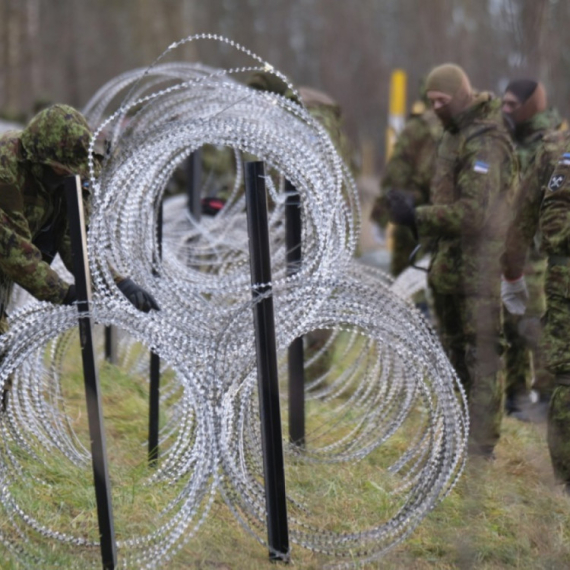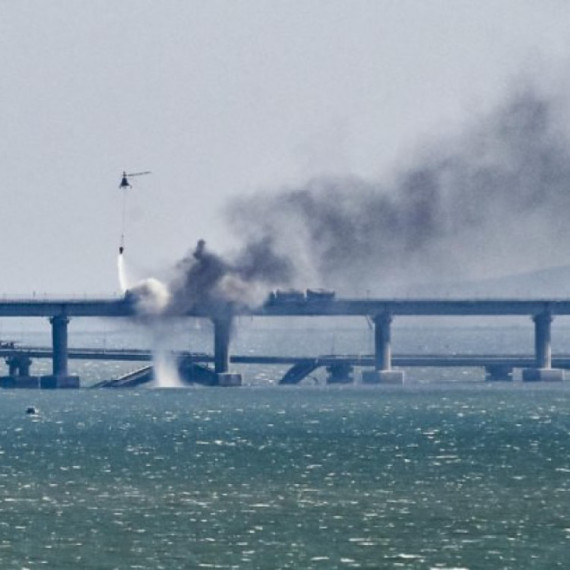Austrian minister says his country won't extradite Divjak
Austrian Foreign Minister Michael Spindelegger has stated that his country will not extradite war crimes suspect Jovak Divjak.
Monday, 07.03.2011.
14:04

Austrian Foreign Minister Michael Spindelegger has stated that his country will not extradite war crimes suspect Jovak Divjak. The former Bosnian Army general was arrested at the Vienna airport on Thursday evening. Austrian minister says his country won't extradite Divjak He has been indicted in Serbia in connection to the May 1992 Dobrovoljacka St. massacre when retreating Yugoslav People's Army (JNA) soldiers were attacked and killed in Sarajevo. According to Austrian international law experts, Divjak's extradition to Serbia is unthinkable, Spindelegger told the Vienna daily Kurier. At the same time, it was stated in Vienna that Spindelegger will not be travelling to Sarajevo as previously planned, with illness being cited as the reason. Meantime, Divjak is in extradition prison in Austria, whose judicial authorities are expected to decide on the extradition request. Austrian media today quote diplomatic sources and say that the arrest was in fact the result of miscommunication, and that Interpol was supposed to "annul the warrant a long time ago". One of the reasons for this, the APA news agency writes, is that a "precedent was already set" when Ejup Ganic was arrested in London. Ganic was charged in connection to the same case and was freed by a London extradition court. Court awaits The Austrian authorities still await the files related to the case against former Bosnian general Jovan Divjak, which will be used to decide whether to extradite him to Serbia. This is according to Christa Zemanek, spokesperson for the Korneuburg court, where Divjak has been held since Thursday. The court has decided to detain Divjak for 14 days, she noted. The authorities will choose their course of action once they receive the files from Serbia, Bosnia-Herzegovina and the International Criminal Tribunal for the former Yugoslavia, Zemanek stated.
Austrian minister says his country won't extradite Divjak
He has been indicted in Serbia in connection to the May 1992 Dobrovoljačka St. massacre when retreating Yugoslav People's Army (JNA) soldiers were attacked and killed in Sarajevo.According to Austrian international law experts, Divjak's extradition to Serbia is unthinkable, Spindelegger told the Vienna daily Kurier.
At the same time, it was stated in Vienna that Spindelegger will not be travelling to Sarajevo as previously planned, with illness being cited as the reason.
Meantime, Divjak is in extradition prison in Austria, whose judicial authorities are expected to decide on the extradition request.
Austrian media today quote diplomatic sources and say that the arrest was in fact the result of miscommunication, and that Interpol was supposed to "annul the warrant a long time ago".
One of the reasons for this, the APA news agency writes, is that a "precedent was already set" when Ejup Ganić was arrested in London. Ganić was charged in connection to the same case and was freed by a London extradition court.
Court awaits
The Austrian authorities still await the files related to the case against former Bosnian general Jovan Divjak, which will be used to decide whether to extradite him to Serbia.This is according to Christa Zemanek, spokesperson for the Korneuburg court, where Divjak has been held since Thursday.
The court has decided to detain Divjak for 14 days, she noted.
The authorities will choose their course of action once they receive the files from Serbia, Bosnia-Herzegovina and the International Criminal Tribunal for the former Yugoslavia, Zemanek stated.






















Komentari 13
Pogledaj komentare